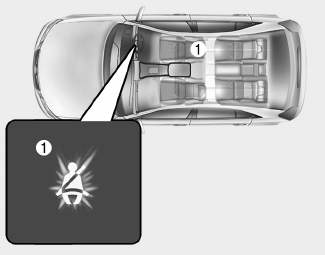Hyundai i-30: Lubrication System / Oil Pump
Components and components location
| Components |

| 1. Cylinder block 3. Oil pump sproket |
2. Oil pump |
Repair procedures
| Removal And Installation |
Oil Pump
| 1. |
Remove the engine room under cover.
(Refer to Engine and Transaxle Assembly - "Engine Room Under Cover")
|
| 2. |
Drain the engine oil.
(Refer to Lubrication System - "Engine Oil")
|
| 3. |
Remove the oil pan.
(Refer to Lubrication System - "Oil Pan")
|
| 4. |
Turn the oil pump chain tensioner (A) in the direction of the arrow
and remove the oil pump chain and spricket (B) from the oil pump.
|
| 5. |
Remove the oil pump (A).
|
| 6. |
Install in the reverse order of removal.
|
| 7. |
Start engine and check for oil leaks.
|
Oil Pump Chain
| 1. |
Remove the timing chain.
(Refer to Timing System - "Timing Chain")
|
| 2. |
Remove the oil pump chain tensioner arm (A).
|
| 3. |
Remove the oil pump sproket (A) and oil pump chaing (B).
|
| 4. |
Install in the reverse order of removal.
|
| 5. |
Start engine and check for oil leaks.
|
 Engine Oil
Engine Oil
Repair procedures
Engine Oil and Filter Replacement
•
Prolonged and repeated contact with mineral oil will result
in the removal of natural fats from the skin, leading to dryness,
irritation and dermatitis...
 Oil Pressure Control Solenoid Valve
Oil Pressure Control Solenoid Valve
Repair procedures
Removal
1.
Disconnect the negative battery terminal.
2.
Disconnect the oil pressure control solenoid valve wiring, and then
remove the oil pressure control solenoid valve (A)...
Other information:
Hyundai i30 (PD) 2018-2025 Owner's Manual: To adjust the sensitivity of Smart Cruise Control
The sensitivity of vehicle speed when following the front vehicle to maintain the set distance can be adjusted. Go to the 'User Settings → Driving Assist → Smart Cruise Control Speed → Slow/Normal/ Fast' on the LCD display. You may select one of the three stages you prefer...
Hyundai i30 (PD) 2018-2025 Owner's Manual: Headlamp, static bending lamp, position lamp, turn signal lamp and daytime running light bulb replacement
Type A Type B (1) Headlamp (High) (2) Headlamp (Low) (3) Turn signal lamp (4) Daytime running light (if equipped) (5) Position lamp (6) Static bending light WARNING Handle halogen bulbs with care. Halogen bulbs contain pressurized gas that will produce flying pieces of glass that could cause injuries if broken...
Categories
- Manuals Home
- 3rd Generation i30 Owners Manual
- 3rd Generation i30 Service Manual
- Engine compartment
- Auto door lock/unlock features
- Shift-lock system. Shift-lock release
- New on site
- Most important about car
Seat belt warning light
Seat belt warning
Driver’s seat belt warning

■ Instrument cluster
As a reminder to the driver, the seat belt warning light will illuminate for approximately 6 seconds each time you turn the ignition switch ON regardless of belt fastening.
Copyright © 2025 www.hi30.net




